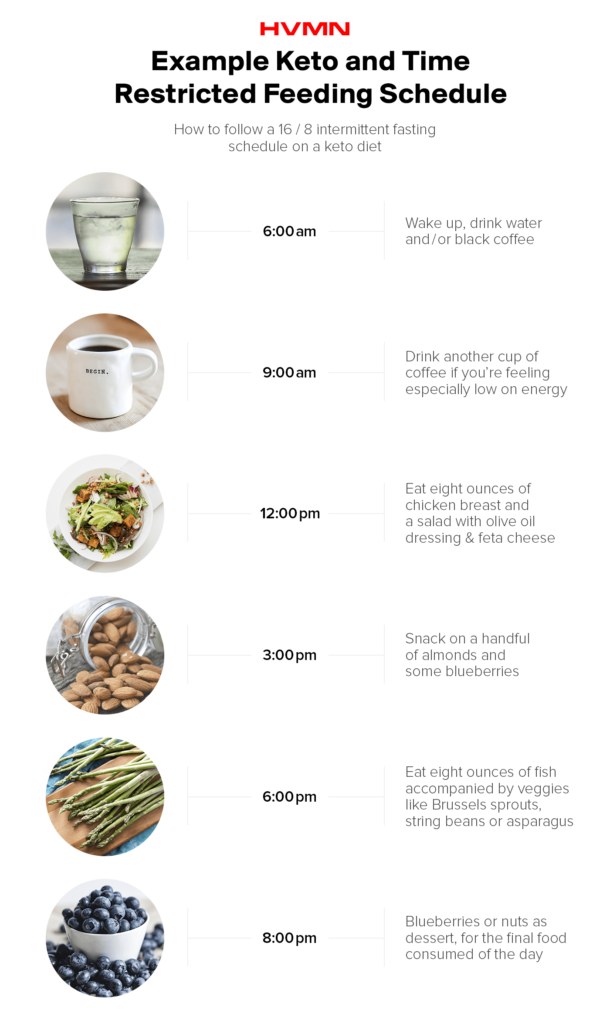In “My husband might have cancer. He should’ve listened,” Dr. Boz shares a deeply personal narrative that highlights the significance of proactive health measures, specifically in cancer screening. Through her experience with her husband’s reluctance to undergo a colonoscopy, she sheds light on the critical need for early detection of colon cancer and the dietary and lifestyle changes necessary following such a diagnosis. The article further addresses common misconceptions surrounding cancer screenings and offers insights into the role of diet in recovery.
The discussion also features a comprehensive Q&A session that tackles various topics related to colon cancer, providing viewers with essential information on symptoms, the effectiveness of screening methods, and ongoing health management post-treatment. By encouraging dialogue around these experiences, Dr. Boz aims to empower readers to take charge of their health, demonstrating the potential life-saving impact of timely medical intervention.
Personal Health Journey

Completing a fast with glucose and ketone levels
Embarking on a personal health journey often involves making conscious decisions that align with your wellness goals. Recently, you completed a fast, noting your glucose levels at 68 mg/dL and ketone levels at 2.8 mmol/L. Such fasting periods can provide insights into metabolic flexibility and overall health. Monitoring these levels can help you understand how your body responds to fasting and dietary changes, and can guide adjustments to your lifestyle for better health outcomes.
Impact of fasting on overall health
Fasting holds numerous benefits beyond weight management; it is known to promote cellular repair and reduce inflammation. By engaging in fasting, you allow your body a break from constant digestion, granting it the opportunity to reset and heal. This reset can lead to improved insulin sensitivity, better metabolic health, and a reduced risk of chronic diseases. Understanding these impacts can be empowering as you prioritize your health journey.
Personal commitment to health and wellness
Committing to your health and wellness can be a transformative experience. Through personal dedication, such as your recent fasting experience, you are taking proactive steps toward a healthier lifestyle. As you navigate this journey, remind yourself that perseverance and resilience will serve as guiding principles. Your commitment becomes pivotal not only for personal growth but also as an inspiration to those around you.
Colonoscopy Discussion
Debate with husband over colonoscopy necessity
A notable aspect of your health discussion involves a candid debate with your husband regarding the necessity of undergoing a colonoscopy. His initial resistance, rooted in fear and skepticism, is common among many individuals faced with the idea of such screenings. Yet, your conviction in the importance of regular screenings became a focal point for conversation, ultimately reinforcing your commitment to shared health within your marriage.
Factors contributing to resistance against screenings
Resistance to screenings, particularly colonoscopies, can arise from various factors, including fear of discomfort, misconceptions about the procedure, and a lack of awareness surrounding its critical role in preventive health. For you, discussions with your husband illuminated these barriers, allowing you to share insights on the significance of early detection and prevention strategies against colon cancer, underpinning your dialogues with evidence-based information.
Importance of early detection in preventing colon cancer
The statistics surrounding colon cancer speak loudly in favor of early detection. Regular screenings can identify precursors to cancer, such as polyps, allowing for timely intervention before cancer develops. By advocating for these screenings, you empower both yourself and your spouse to take ownership of your health, ensuring that you stay ahead of potential health issues.
Husband’s Experience
His initial apprehension regarding the procedure
Initially, your husband expressed significant apprehension regarding the colonoscopy. The thought of undergoing a procedure often labeled invasive can provoke anxiety in many. Through patience and understanding, you managed to navigate these fears together, ultimately making the choice to prioritize health over apprehension. This journey together fostered a sense of partnership, critical in navigating health-related decisions.
Encouragement and faith-driven support
As each conversation progressed, you found yourself motivated not only by science but also by faith. Grounded by your beliefs, you consistently provided encouragement, reinforcing the message that undergoing this procedure could be a matter of life and death. Your faith-driven support played an essential role in guiding your husband through his fears, eventually leading to his decision to proceed with the colonoscopy.

Follow-up pathology report results
After the procedure, you learned that your husband had a significant polyp measuring 17mm, necessitating further pathology assessment. The discovery of this polyp underscored the dire importance of early detection and screening. You both realized that the fear of the procedure must always be weighed against the potential health consequences of not having it performed.
Health Insights Shared
Understanding the risks associated with polyps
During your discussions, you shared valuable insights regarding the risks associated with polyps. Large polyps, like the one discovered in your husband’s colon, have an increased risk of harboring malignant properties. Understanding these risks is crucial in advocating for routine screenings, making it imperative to emphasize the importance of regular check-ups and monitoring.
The role of colonoscopies in cancer prevention
You highlighted how colonoscopies serve as a vital tool in preventing colon cancer. They not only facilitate the removal of polyps but also allow for real-time interventions that can save lives. By voicing these insights, you are contributing to a wider dialogue that encourages individuals to take proactive steps in managing their health.
Significance of family medical history in screening
Family medical history is a crucial factor in determining when and how often screenings should take place. Individuals with a family history of colorectal cancer or related conditions may need to start screenings earlier or undergo them more frequently. As you navigate this process with your husband, you have also been reminded of the necessity for open discussions about family health histories in order to make informed preventative choices.
Dietary Protocol
Implementing a high ketones, low glucose diet
In the wake of your husband’s colonoscopy, you advocated for implementing a high ketones, low glucose dietary protocol. By promoting a diet that emphasizes healthy fats and minimizes sugars, you aim to fortify his healing process. Such dietary modifications are beneficial not only for inflammation reduction but also for overall metabolic health.
Foods that promote healing and inflammation reduction
Along this dietary journey, you began to explore and incorporate foods known to enhance healing. Leafy greens, fatty fish, nuts, and avocados emerge as top contenders in this plan, providing essential nutrients that support recovery and inhibit inflammation. Educating yourself and your husband about the healing properties of such foods has become a cornerstone of his post-procedure regime.
Long-term dietary strategies for cancer prevention
You recognize that dietary changes must not be seen as temporary but rather as a long-term commitment to health. By embracing a diet rich in whole, unprocessed foods and maintaining a focus on anti-inflammatory options, you’re fostering an environment conducive to healthful living. This strategic dietary approach serves as a proactive measure against potential future health concerns.
Continued Monitoring
Regular monitoring of glucose and ketone levels
Going forward, you and your husband are committed to regular monitoring of glucose and ketone levels. This ongoing assessment allows you to track progress and ensures that any fluctuations are addressed promptly. By prioritizing these health metrics, you are embodying a forward-thinking approach to wellness.

Setting health goals for ongoing improvement
Setting clear health goals is crucial for ongoing improvement. Whether it involves maintaining optimal glucose levels, enhancing physical fitness, or nutritional commitments, these goals provide direction and motivation. By regularly assessing these areas, you ensure that health remains a collaborative priority in your household.
Importance of proactive health management
Being proactive about health management cannot be overstated. By actively engaging in your health decisions and encouraging preventive measures, you are setting a powerful example. Promoting a culture of health awareness fosters not only individual accountability but also a community that values well-being.
Common Mistakes in Cancer Screening
Delaying screenings based on misconceptions
One of the common mistakes people often make is delaying screenings based on misconceptions surrounding the necessity of such procedures. Many succumb to fears or misunderstandings regarding the discomfort involved, neglecting to prioritize their health. Your journey highlights the importance of demystifying these processes and promoting the understanding that regular check-ups can indeed be life-saving.
Ignoring family history and personal symptoms
Another prevalent error is underestimating the implications of family history and personal symptoms. Ignoring these factors can lead to disastrous outcomes. Your advocacy work around these discussions illustrates the importance of recognizing one’s own risk factors as pivotal in health management.
Overlooking the importance of regular check-ups
Regular check-ups are essential components of health maintenance that should never be overlooked. Making time for these appointments and advocating for such practices among friends and family is imperative. As you’ve learned, early detection can significantly improve treatment outcomes, enhancing survival rates and quality of life.
Q&A Session Highlights
Addressing insulin resistance and glucose levels
During your engagements, you addressed inquiries about insulin resistance and its relationship to glucose levels. Conversations around glucose management are integral to overall health, especially in light of recent findings in metabolic health. Understanding these relationships empowers you to make informed decisions regarding dietary and lifestyle choices.
Effectiveness of stool samples in detecting colon cancer
You also discussed the effectiveness of stool samples in detecting colon cancer. While they can serve as preliminary screening tools, they are not substitutes for colonoscopies. By emphasizing the varying effectiveness of different screening methods, you equip others with knowledge that can influence their health decisions.
Common symptoms to watch for regarding colon cancer
Another vital shared insight included symptoms that warrant attention, such as changes in bowel habits, unexplained weight loss, and abdominal discomfort. By raising awareness of these symptoms, you are equipping individuals with the awareness needed to seek timely medical evaluations.
Educational Initiatives
Upcoming workshops on healthy living
As part of your commitment to education and community engagement, you are planning upcoming workshops focused on healthy living. These initiatives will serve as platforms for disseminating knowledge surrounding preventive health practices, facilitating conversations that foster awareness and action.
Resources for metabolic health education
In alignment with these workshops, you will be providing resources on metabolic health education. By leveraging factual information and actionable tips, your goal is to empower individuals to take charge of their health in a meaningful way, promoting long-term well-being.
Engagement with the community for better awareness
Your dedication to engaging with the community serves to raise awareness about the importance of health screening and preventive measures. By establishing forums for dialogue and sharing stories, you create a supportive environment where individuals can access information and feel motivated to prioritize their health.
Conclusion
Reflection on personal health journeys and the importance of screenings
Reflecting on your personal health journey, the significance of screenings becomes abundantly clear. Each experience, particularly in navigating your husband’s hesitance toward his colonoscopy, emphasizes how proactive measures can avert serious health crises. This profound realization should resonate with anyone embarking on their health journey.
Final thoughts on health empowerment and proactive measures
Understanding that health empowerment lies in informed decision-making is critical. Through education, active engagement, and shared experiences, you become equipped to take proactive measures that not only affect your health but can also inspire those around you to follow suit.
Encouragement to seek medical advice for individual circumstances
As you conclude this journey, it is imperative to encourage others to seek medical advice tailored to their individual circumstances. Each person’s health situation is unique, and consulting healthcare professionals will ensure that individuals are making informed decisions specific to their needs. Awareness, education, and communication bind these threads together, leading to healthier outcomes and stronger communities.







